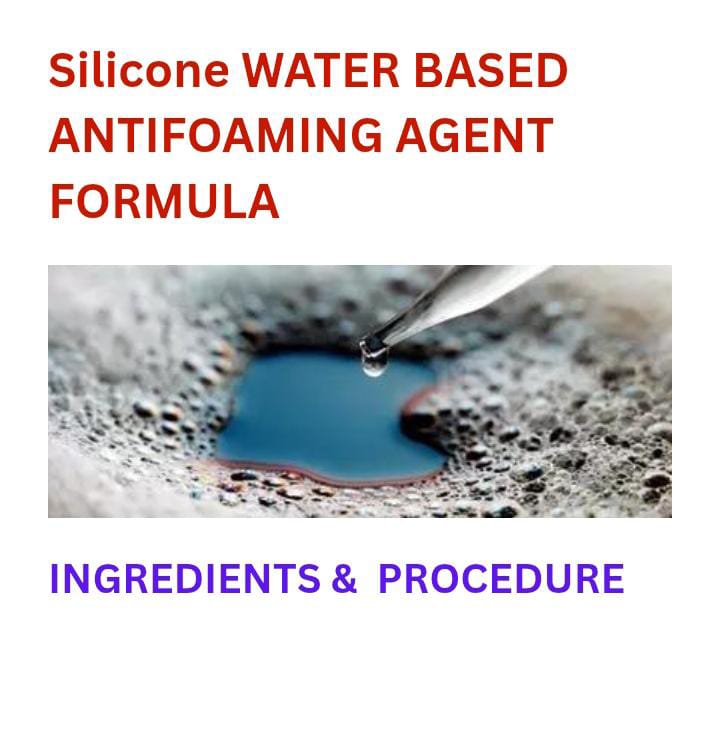
SILICONE WATER BASED ANTIFOAMING AGENT FORMULA
On Sale
$17.00
$17.00
A typical silicone water-based antifoaming agent formula would consist of:
- Silicone oil (polydimethylsiloxane):
- This is the primary active ingredient, providing the defoaming properties; typically a low viscosity silicone oil is used for better dispersion in water.
- Emulsifier:
- A non-ionic surfactant like a polysorbate or a fatty alcohol ethoxylate is needed to create a stable emulsion of the silicone oil in water.
- Dispersing agent:
- Optional, but can include materials like hydrophilic silica or a finely divided mineral to enhance dispersion and prevent clumping of the silicone droplets.
Example formulation (percentages by weight):
- Silicone oil (polydimethylsiloxane):
- Non-ionic surfactant (e.g., polysorbate 80
- Deionized water:
Important considerations:
- Silicone oil viscosity:
- The choice of silicone oil viscosity depends on the application. Lower viscosity silicones are generally better for rapid defoaming, while higher viscosity silicones may provide longer-lasting foam suppression.
- Emulsifier selection:
- The emulsifier should be compatible with the application and have the appropriate hydrophilic-lipophilic balance (HLB) to effectively disperse the silicone oil in water.
- pH adjustment:
- Depending on the application, pH adjustment may be necessary using small amounts of acid or base to optimize performance.
Applications for water-based silicone antifoaming agents:
- Industrial wastewater treatment
- Paints and coatings
- Paper production
- Cleaning solutions
- Textile processing
- Agricultural formulations

